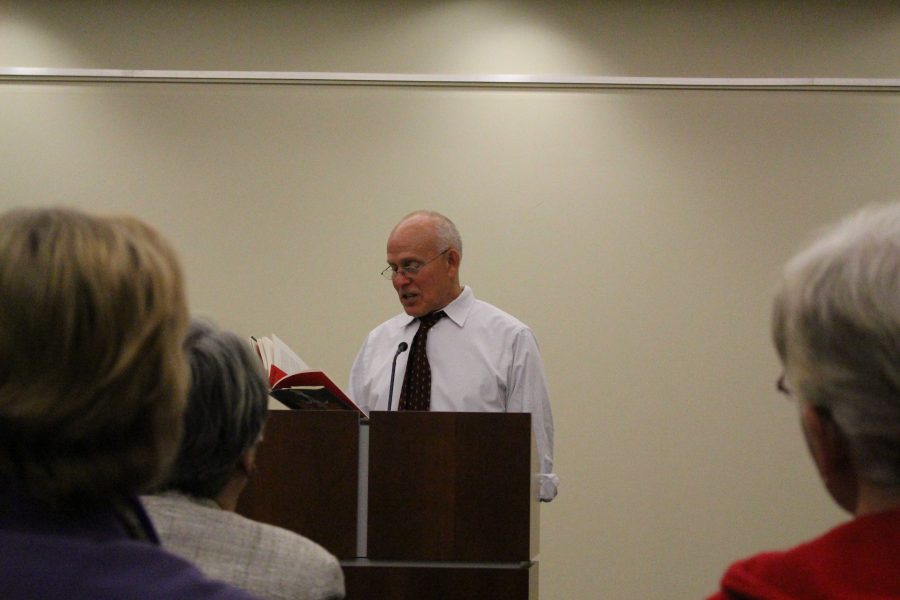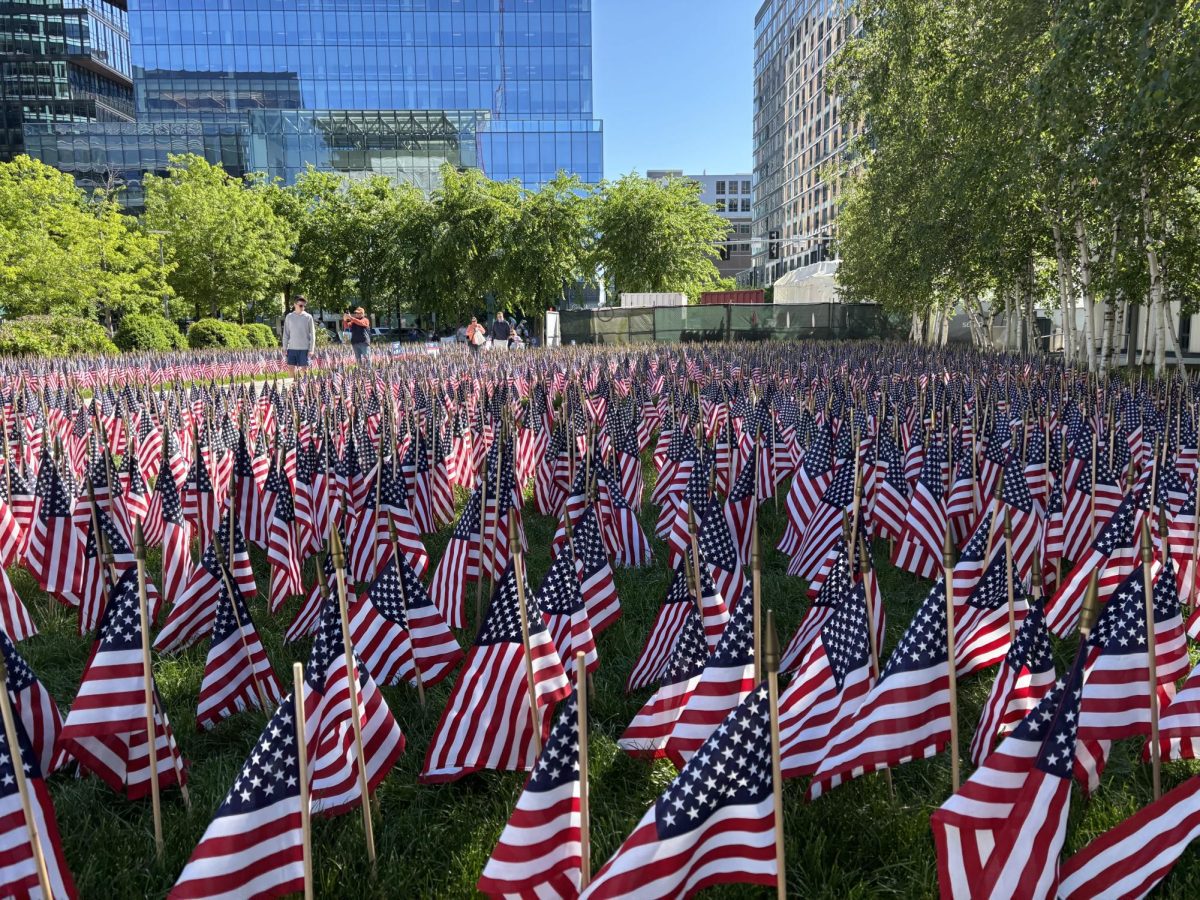
Author Neil Miller reads a selection from his most recently published non-fiction book.
A graduate of Brown University and current English professor at Tufts University, Neil Miller has become a well-known author in Massachusetts. On Tuesday, October 22 at 7:00 p.m., Miller gave a lecture about his most recent book at the Walpole Public Library— a program that was made possible by the Friends of the Walpole Public Library.
Miller has already received multiple awards for his journalism and narrative non-fiction writing, including the 1991 American Library Association Award for gay and lesbian nonfiction and the 1989 and 2001 Lambda literary award for non-fiction. Although known for his multiple non-fiction works discussing homosexuality, his new release Banned in Boston retells the history of the New England Watch and Ward Society. For more than eighty years, this society acted as a notorious literary censor as well as a vigilant police force, with most of its members being clergy who were previously members of the anti-slavery movement.
At the start of his discussion, Miller talked about censorship in the city of Boston; he said, “For many years, it was Boston and the Boston area that was the censorship capital of America… All great works of American and World literature were unavailable for many years in Boston area bookstores. Major works of the theater were unable to be performed on stage in Boston.”
He spoke mostly about the history and actions of the New England Watch and Ward Society. Miller said, “The New England Watch and Ward Society acted as New England’s moral guardian, determining what New Englanders could and could not read, what theatrical productions you could and could not see, and on occasion they fought political corruption.”
Miller described the New England Watch and Ward Society as a literary censor group that belittled the public’s freedom of speech and limited the people’s access to great works of art in both literature and the theater. He added that other groups similar to the New England Watch and Ward Society were effective in the United States, however Boston was different. Miller also described that a small, secret committee in Boston decided what novels could and could not be sold in local bookstores and ultimately determined what was censored in Boston.
Miller then read part of an editorial from the Boston Herald that repented censorship and demanded that the public be able to read, think, and hear whatever they desire. Many people in Boston then became critical of the censorship policies, so the phrase “banned in Boston” gained national meaning. He added that literature that was banned in the city of Boston actually experienced increased sales in the rest of the country.
Miller also stated that in 1957 the Watch and Ward Society started to focus on combatting gambling and organized crime, so it changed its name to the New England Citizens Crime Commission. Concluding the discussion, Miller said that the practices of the Watch and Ward Society were totally repressive; however, they did succeed in getting rid of the corrupt District Attorneys of Suffolk County and Middlesex County.
He closed by answering questions from the audience, who were then able to purchase his new book, Banned in Boston. As a local author from Tufts University, Neil Miller’s important speech at the Walpole Public Library displays his continuation of success as a writer as well as Walpole’s connection to the realm of literature.









